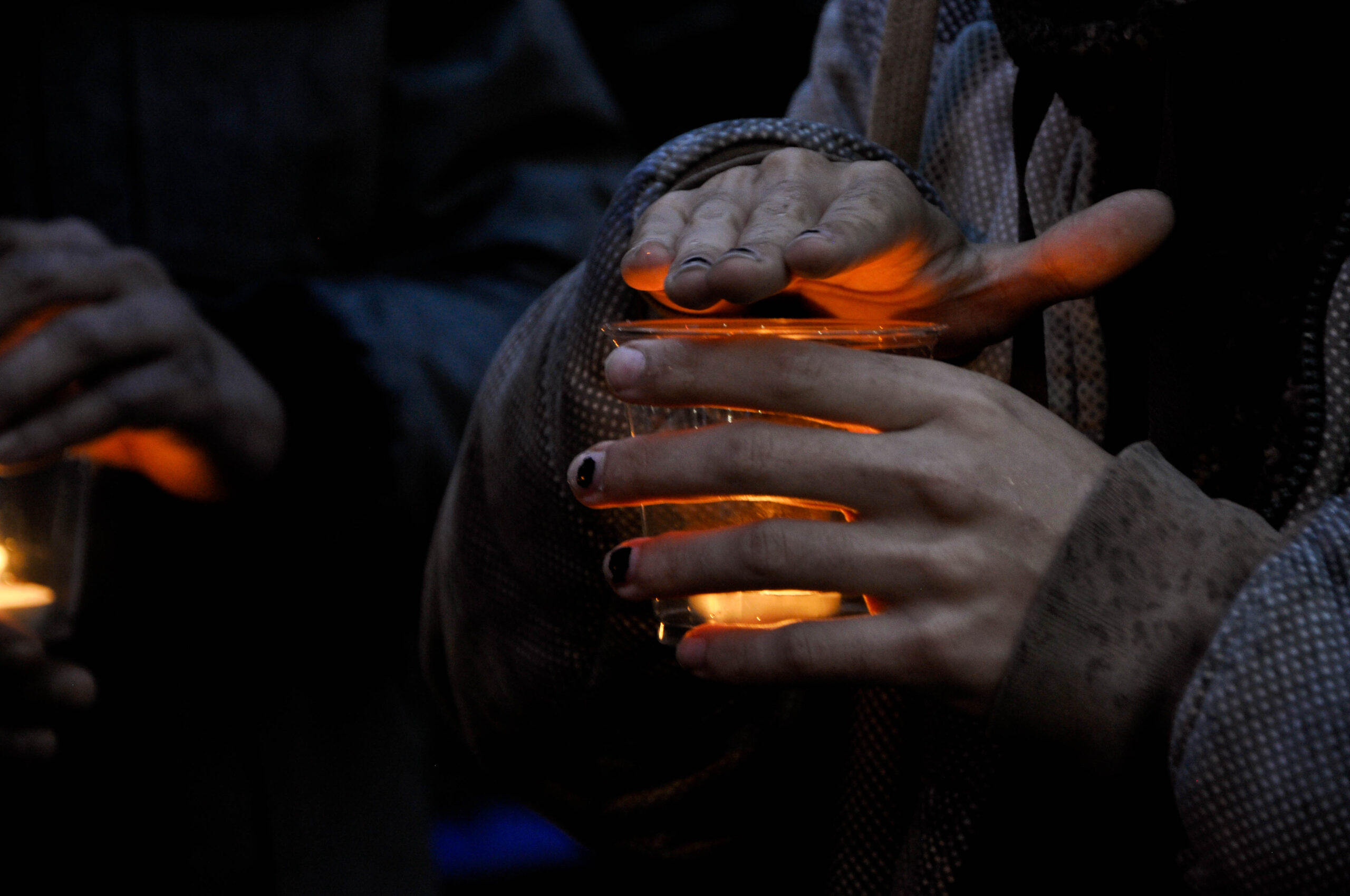A small but dedicated group of Vancouverites gathered in the rain on Thursday to protest the mass arrests of queer Egyptians by the oppressive al-Sisi regime.
According to The Washington Post, police in Egypt have arrested more than 60 people since September, after some audience members waved a rainbow flag at a concert by a Lebanese band whose lead singer is openly gay.
Human rights activists told The Post that police are raiding people’s homes in the middle of the night, entrapping them on apps, and allegedly beating them in prison and subjecting them to forced anal examinations.
Imtiaz Popat, who organized the small vigil in front of the Vancouver office of Canada’s Immigration and Refugee Board on Oct 19, 2017, hopes the Canadian government will pressure Egypt to stop targeting its LGBT citizens.
“If we’re going to engage in international trade, it is also our responsibility to advocate for human rights, equality and dignity,” he says.
Flynn Wilbur, despite not having any personal connection to Egypt, says he attended the vigil to stand in solidarity with others in the global queer community. “Wherever they are, that’s where I have ties to,” he says.
Violations of human rights under President Abdel Fattah al-Sisi’s government have been well documented by Human Rights Watch, including the Rab’a massacre in which more than 800 people protesting the regime were killed in a single day in August 2013.

Roger Lemieux, Imtiaz Popat, Saed Ahmad and Flynn Wilbur at the vigil in Vancouver. Credit: Moe Yang/Xtra
In a cruel irony, the current regime is viewed by some as even more oppressive than that of Hosni Mubarak, who was toppled in 2011 in hopes of a more progressive political program during the Arab Spring revolutions. According to CNN, Egypt is now in a “spiralling economic crisis.”
Popat is disappointed that the Arab Spring revolutions failed to maintain the progressive wave of energy that sparked them, instead often ending up co-opted by religious hardliners.
“This is why I think it is important that we do lobby our government and international agencies to step in,” he says, “because the Arab Spring was an opportunity for change and that revolution unfortunately has been quashed. And all the hopes and aspirations for liberties and freedoms in the Middle East have been quashed.”
Although homosexuality is not technically a criminal offence in Egypt, a 2013 study by the Pew Research Center on global attitudes found approximately 95 percent of Egyptians viewed homosexuality as socially unacceptable.
LGBT Egyptians can still find themselves arrested on charges of “debauchery,” which carries a maximum sentence of three years, but a recently introduced bill could increase the sentence to up to 25 years.
Roger Lemieux has a hard time believing that LGBT Egyptians face prison time simply for expressing who they are. “It’s just incomprehensible to me, the fact that this still occurs at this time, regardless of faith, regardless of religion, that we still have those boundaries to cross after all these years,” says Lemieux, who was one of four people to attend the vigil in Vancouver.
In response to the ongoing wave of arrests, activists called for international demonstrations of solidarity. The next demonstration is to be held on Oct 21 in Ottawa.
A petition started by Allout on Oct 7 aims to “remind the Egyptian state of its responsibility to protect citizens and guarantee their freedom of speech and expression.” The petition has so far garnered more than 42,000 signatures in two weeks.
In Vancouver, the protesters kept huddled together against the rain, fighting to keep their candles alight. “It is damp but I don’t think it dampened our spirits,” Popat says.
Even though the turnout wasn’t what he had hoped, Popat says the vigil was just one part of a much larger grassroots movement, which, like the protests in Tunisia and Egypt six years ago, carried with them the hope for change.
“And I think those people who showed the rainbow flag in Egypt are very brave, very courageous and we need to support them,” he says. “Now this is their own Arab spring.”
Legacy: October 21, 2017 9:52 amAn earlier version of this story said the next vigil would be held in Ottawa on Oct 22; in fact the Ottawa demonstration is Oct 21.

 Why you can trust Xtra
Why you can trust Xtra


